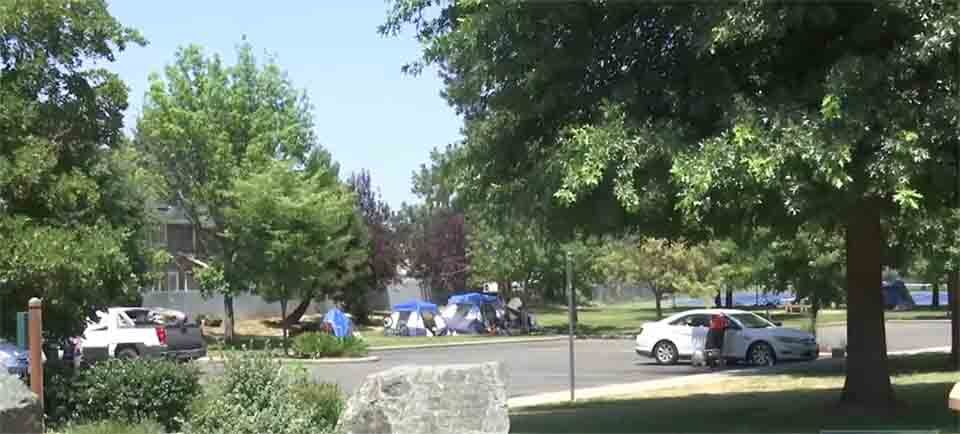Grants Pass Homeless Camping: Supreme Court Rules In Favor Of City

GRANTS PASS, Ore. — After hearing arguments in the case, the U.S. Supreme Court (Scotus) ruled today in favor of the city in the matter of The City of Grants Pass v. Johnson, a case that revolves around homeless people camping ordinances in parks and public spaces. The court’s judgment extended to the west coast areas.
UPDATE: Grants Pass Adopts Softer Approach to its Homeless Situation
Arguing in their Scotus Brief that the city’s ordinances set out to protect the public health and safety of all its citizens, the city does not target homeless people who could otherwise access and use the parks freely. Certain advocates for homeless people say the city’s rules in effect punish homeless people by restricting camping in public spaces and fines are issued for violations.
The defendants argued that these penalties represent cruel and unusual punishment, a violation of the 8th Amendment to the U.S. Constitution, meted out to people who have few alternatives.
Homelessness In Oregon In The Spotlight At Supreme Court
Today’s ruling was made against a background of rising homelessness in the United States, which grew last year by a significant 12%- its highest reported level. Increasingly unaffordable rents combined with a decline in COVID-19 pandemic assistance took housing out of reach for more people, resulting in more homeless people seeking shelter.
Over 650,000 people are estimated to be homeless, the highest number since the annual point-in-time survey was undertaken in 2007. Those who are disproportionately affected include older adults, people of color, and members of the LGBTQ+ community. The crisis is exacerbated by insufficient mental health and addiction resources, resulting in punishment considered to be cruel and unusual.
Grants Pass v. Johnson Supreme Court Ruling
Municipalities hands were tied by the previous court ruling and the city sought to break the legal chain in the City of Grants Pass v. Gloria Johnson and John Logan et al. matter. It appealed the Johnson decision that struck down local ordinances sections that provided for fines of up to $295 for sleeping outside.
Today’s ruling in the high court is seen as the most significant hearing on homelessness in decades. The majority 6-3 decision struck down an earlier decision by the San Francisco 9th U.S. Circuit Court of Appeals court finding outdoor sleeping bans to qualify as cruel and unusual punishment. Councils argued the lower court ruling made management of encroachment onto sidewalks and outdoor encampments more difficult.
In their ruling, the judges noted that the 5 states with the highest rates of unsheltered homelessness in the U.S. are in the American West. These are Oregon, California, Arizona, Nevada, and Hawaii. The ruling allows cities to enforce bans on homeless people sleeping outdoors in West Coast areas.
Referring to another case revolving around homelessness, Robinson, the presiding judge notes that homelessness is complex, with many causes, and the public policy required to address it is complex too. But he said that the 8th Amendment does not grant federal judges primary responsibility for assessing the causes and responses. those causes and devising those responses.
He said, “A handful of federal judges cannot begin to ‘match’ the collective wisdom the American people possess in deciding “how best to handle” a pressing social question like homelessness.”
In their response, the City of Grants Pass is grateful to know the Supreme Court’s opinion, as are many others across the U.S. They said it will help guide their next steps regarding unhoused community members. The city is awaiting a briefing from their legal counsel before discussing their options for moving forward.
See also: Grants Pass Mayor Stymies Bill That Would Hinder Homeless Aid Organisations
No specific steps have been decided yet, but the city is committed to assisting residents struggling to find stable housing Their release indicated that “We will continue working to make Grants Pass a safe and welcoming community for all.”
